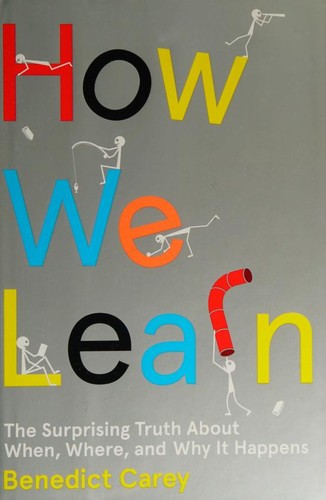254 pages
English language
Published Nov. 12, 2014 by Bantam Books, Random House.

254 pages
English language
Published Nov. 12, 2014 by Bantam Books, Random House.
From an early age, we are told that restlessness, distraction, and ignorance are the enemies of success. Learning is all self-discipline, so we must confine ourselves to designated study areas, turn off the music, and maintain a strict ritual. But what if almost everything we were told about learning is wrong? And what if there was a way to achieve more with less effort? Here, award-winning science reporter Benedict Carey sifts through decades of education research to uncover the truth about how our brains absorb and retain information. What he discovers is that, from the moment we are born, we all learn quickly, efficiently, and automatically; but in our zeal to systematize the process we have ignored valuable, naturally enjoyable learning tools like forgetting, sleeping, and daydreaming. Is a dedicated desk in a quiet room really the best way to study? Can altering your routine improve your recall? Are there …
From an early age, we are told that restlessness, distraction, and ignorance are the enemies of success. Learning is all self-discipline, so we must confine ourselves to designated study areas, turn off the music, and maintain a strict ritual. But what if almost everything we were told about learning is wrong? And what if there was a way to achieve more with less effort? Here, award-winning science reporter Benedict Carey sifts through decades of education research to uncover the truth about how our brains absorb and retain information. What he discovers is that, from the moment we are born, we all learn quickly, efficiently, and automatically; but in our zeal to systematize the process we have ignored valuable, naturally enjoyable learning tools like forgetting, sleeping, and daydreaming. Is a dedicated desk in a quiet room really the best way to study? Can altering your routine improve your recall? Are there times when distraction is good? Is repetition necessary? Carey's search for answers to these questions yields a wealth of strategies that make learning more a part of our everyday lives--and less of a chore.--From publisher description.